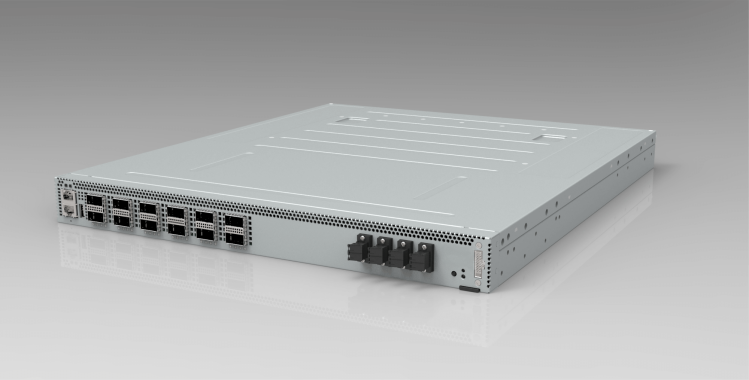At its inaugural Telecom Infra Project (TIP) Summit event at company headquarters today, Facebook is announcing the development of Voyager, a new piece of data center networking hardware known as a transponder, which takes packets from switches and routers and gets them ready to be sent out over fiber optic cables. Facebook intends to share the design for the device under the recently established TIP program.
Other companies, including Cisco, sell transponders. But Facebook wanted to build a “white-box” system, just as it’s done for servers, storage, and other networking gear in recent years. This is another way for Facebook to control its destiny, not only economically but also functionally. (Separately, LinkedIn is also developing its own data center infrastructure, as Business Insider recently reported.)
The 1 rack-unit (RU) hardware comes with 12 QSFP28 ports and four 200Gbps DWDM line ports. In certain ways Voyager draws on parts of Facebook’s Wedge 100Gbps switch. It’s capable of working with packets in metro environments — think multiple data centers located around a single city — or even preparing them to be sent from one datacenter to another one that’s much, much farther away.
While Facebook used its own existing technology for Voyager, it also incorporates products from third parties. For example, it contains an AC400 digital signal processor (DSP) application-specific integrated circuit (ASIC) and optics module from Acacia Communications, which recently went public, and it draws on software from networking startup SnapRoute.
June 5th: The AI Audit in NYC
Join us next week in NYC to engage with top executive leaders, delving into strategies for auditing AI models to ensure fairness, optimal performance, and ethical compliance across diverse organizations. Secure your attendance for this exclusive invite-only event.
“The open approach to development of optical packet systems will allow for faster time to market and a lower barrier of entry for new technologies, ultimately helping us move more quickly toward a more open and connected world,” Facebook engineer Ilya Lyubomirsky, optical network engineer Brian Taylor, and engineering director Hans-Juergen Wolfgang Schmidtke wrote in a blog post.
Equinix and MTN have already experimented with Voyager, and Facebook intends to open-source the underlying software in time.
See the full blog post for more detail.

